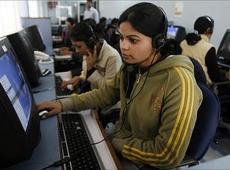Singapore Raises Retirement Age, Funds Global Leadership Training
By Rediff Money Desk, SINGAPORE Mar 04, 2024 18:20
Singapore addresses workforce challenges by raising retirement age, funding overseas training for local employees to boost their global leadership potential.
Singapore, Mar 4 (PTI) Addressing a compelling question of why few Singaporeans are in global leadership corporate roles, the government on Monday that a new agency will help fund overseas training stints for them under a new programme.
The new Overseas Markets Immersion initiative encourages businesses to send local employees for overseas postings to gain international experience and complements the Global Business Leaders Programme led by the Ministry of Trade and Industry, which targets the senior ranks.
Manpower Minister Tan See Leng also told Parliament that Singapore, facing a severe manpower shortage, is raising the retirement age of working Singaporeans from 63 to 64 from July 1, 2026.
As for local retirees, Singapore-based companies must offer eligible staff re-employment until the age of 69, though on adjusted terms if necessary, or employment assistance in its place.
The Manpower Minister said the timeline for the move, which he said was reached with consensus among the tripartite grouping of his ministry, unions and employers.
The ceilings were last raised in 2022 after the Government said in 2019 that the retirement age would be raised to 65 and the re-employment age to 70 by the year 2030.
The latest implementation date answers the call from some quarters to give businesses and workers ample time to prepare.
Tan said during the debate on his ministry's budget that his team has its eyes on three broad thrusts this work year: to boost the employability of local workers, shore up retirement adequacy for vulnerable ones and promote fairer and inclusive workplaces - including protecting workers from age-related dismissals before their statutory retirement age.
Many have asked what keeps me awake at night, he said, adding that near-term headwinds, falling birth rates and an ageing population are weighing on the labour market.
If we do not succeed in sustaining our productivity in the next 10 years, I worry that we will suffer real declines in economic growth, the main broadsheet quoted Tan as saying in the house.
To make workplaces fairer and coax more segments of the population into the workforce, the Ministry of Manpower (MOM) is taking a multi-pronged approach.
Further, two bills expected to be passed in 2024 will deter discrimination based on traits such as age, race and disability, as well as better protect platform workers.
Guidelines for a clear process on how workers and their bosses should work out flexible work arrangements will also be published in 2024.
In his 45-minute speech, Tan outlined policies aimed at balancing the demands between staying open to foreign talent and making local workers more competitive in the global talent place.
Employers will get help with job redesigning and employee training with four more job transformation maps, on top of the current that already covers 1.5 million local workers. These new maps include two of the latest hot industries - generative artificial intelligence and sustainable finance.
Employers will also get more payroll support under the Career Conversion Programmes (CCPs). They can receive up to SGD 45,000 (USD 33,513.75) for each worker for a six-month conversion programme.
The maximum salary support for mature or long-term unemployed workers will be bumped up from SGD 6,000 to SGD 7,500 (USD 4,468 to USD 5,585) a month, and for other CCP participants, it will be raised from SGD 4,000 to SGD 5,000 (USD 2,979 to USD 3,723) a month.
The new Overseas Markets Immersion initiative encourages businesses to send local employees for overseas postings to gain international experience and complements the Global Business Leaders Programme led by the Ministry of Trade and Industry, which targets the senior ranks.
Manpower Minister Tan See Leng also told Parliament that Singapore, facing a severe manpower shortage, is raising the retirement age of working Singaporeans from 63 to 64 from July 1, 2026.
As for local retirees, Singapore-based companies must offer eligible staff re-employment until the age of 69, though on adjusted terms if necessary, or employment assistance in its place.
The Manpower Minister said the timeline for the move, which he said was reached with consensus among the tripartite grouping of his ministry, unions and employers.
The ceilings were last raised in 2022 after the Government said in 2019 that the retirement age would be raised to 65 and the re-employment age to 70 by the year 2030.
The latest implementation date answers the call from some quarters to give businesses and workers ample time to prepare.
Tan said during the debate on his ministry's budget that his team has its eyes on three broad thrusts this work year: to boost the employability of local workers, shore up retirement adequacy for vulnerable ones and promote fairer and inclusive workplaces - including protecting workers from age-related dismissals before their statutory retirement age.
Many have asked what keeps me awake at night, he said, adding that near-term headwinds, falling birth rates and an ageing population are weighing on the labour market.
If we do not succeed in sustaining our productivity in the next 10 years, I worry that we will suffer real declines in economic growth, the main broadsheet quoted Tan as saying in the house.
To make workplaces fairer and coax more segments of the population into the workforce, the Ministry of Manpower (MOM) is taking a multi-pronged approach.
Further, two bills expected to be passed in 2024 will deter discrimination based on traits such as age, race and disability, as well as better protect platform workers.
Guidelines for a clear process on how workers and their bosses should work out flexible work arrangements will also be published in 2024.
In his 45-minute speech, Tan outlined policies aimed at balancing the demands between staying open to foreign talent and making local workers more competitive in the global talent place.
Employers will get help with job redesigning and employee training with four more job transformation maps, on top of the current that already covers 1.5 million local workers. These new maps include two of the latest hot industries - generative artificial intelligence and sustainable finance.
Employers will also get more payroll support under the Career Conversion Programmes (CCPs). They can receive up to SGD 45,000 (USD 33,513.75) for each worker for a six-month conversion programme.
The maximum salary support for mature or long-term unemployed workers will be bumped up from SGD 6,000 to SGD 7,500 (USD 4,468 to USD 5,585) a month, and for other CCP participants, it will be raised from SGD 4,000 to SGD 5,000 (USD 2,979 to USD 3,723) a month.
Read More On:
DISCLAIMER - This article is from a syndicated feed. The original source is responsible for accuracy, views & content ownership. Views expressed may not reflect those of rediff.com India Limited.
You May Like To Read
TODAY'S MOST TRADED COMPANIES
- Company Name
- Price
- Volume
- GTL Infrastructure
- 2.93 ( -4.87)
- 226206286
- IFL Enterprises
- 1.30 (+ 4.84)
- 81461564
- Vodafone Idea L
- 16.79 (+ 0.66)
- 67447398
- NCL Research
- 0.95 ( -4.04)
- 31996628
- Franklin Industries
- 3.73 (+ 3.32)
- 21511209
MORE NEWS

Navi Mumbai Airport ILS Signal Testing Begins
The Airports Authority of India (AAI) has begun ILS signal testing at the...

Air India VRS for Non-Flying Staff Ahead of...
Air India has announced a voluntary retirement scheme (VRS) and voluntary separation...
Fisher Groups Oppose WTO Fisheries Subsidy Talks
Small-scale fisher groups from India, Indonesia, and Bangladesh demand WTO keep...












 © 2024 Rediff.com India Limited. All rights reserved.
© 2024 Rediff.com India Limited. All rights reserved.